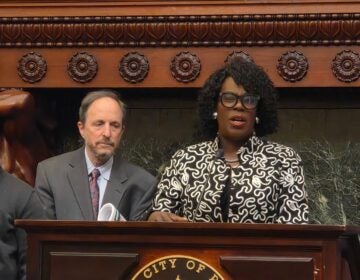Try the side door
For a year or so, I’ve been getting together with a group of people to talk about the topic that may be the hardest of all to talk about.That would be race.
The New Conversation on Race and Ethnicity, also known as NewCORE, meets monthly. This ad-hoc group tries to take up the challenge Barack Obama laid before us in his speech on race in Philadelphia in 2008: Make a more perfect union by having a more candid, more healing conversation about race.At NewCORE we surely don’t have the tensions and booby traps of this topic licked. But we’ve figured out one thing.We make the most progress when we leave the packaged agendas at the door. Mostly, we tell each other stories. About what it was like to grow up where we did, in the skin we were born to. About things that made us strong, and things that still make us ache.I’ve heard African-American friends tell wrenching tale after tale of having watched their father, their mother, their neighbor be publicly insulted, relegated, denied their basic dignity.So when it came my turn, the white guy from the ‘burbs, this was the story I told.I grew up on a tree-blessed street in an Ohio suburb that dead-ended into a country club we called The Oakwood. When I was about 13, in return for a favor my Dad did, the club offered him tennis-playing privileges on their pristine courts. My Dad, though a working class guy, had a passion for this posh game. We used to roam the public parks on summer evenings, hunting an open court.So given a chance to play at the Oakwood, well, we were THERE. One day that summer, we were in the midst of a rousing match. Two 12-year-old kids of members sashayed up. Perhaps my memory is embellishing when it pictures them as having white sweaters knotted around their necks.”You’re not a member,” one chirped at my Dad. “We want the court. You have to leave.”Without a word, my Dad dutifully scooped up our balls. I stood stock-still, rigid with rage on his behalf. He gave me a look that said, “Let’s go, buddy. No scene.”I never went back to play at the Oakwood, no matter how often my Dad suggested it.Now, I’m not suggesting for a second that not getting to finish a tennis match at a country club compares to being forced to drink at a separate fountain.Not at all. But when I think of that memory, how it rankles still, 40 years later, I get the tiniest inkling of the weight my friends carry around.So, does that solve the Race Problem? No. Do I suddenly grasp all the jagged contours of the black experience in America? Hardly. But I have built my capacity for sympathetic understanding, which is what Obama challenged us to do.Never again will I ask myself: Where does all that rage come from?When risking a new conversation, progress comes in tiny steps.
WHYY is your source for fact-based, in-depth journalism and information. As a nonprofit organization, we rely on financial support from readers like you. Please give today.




